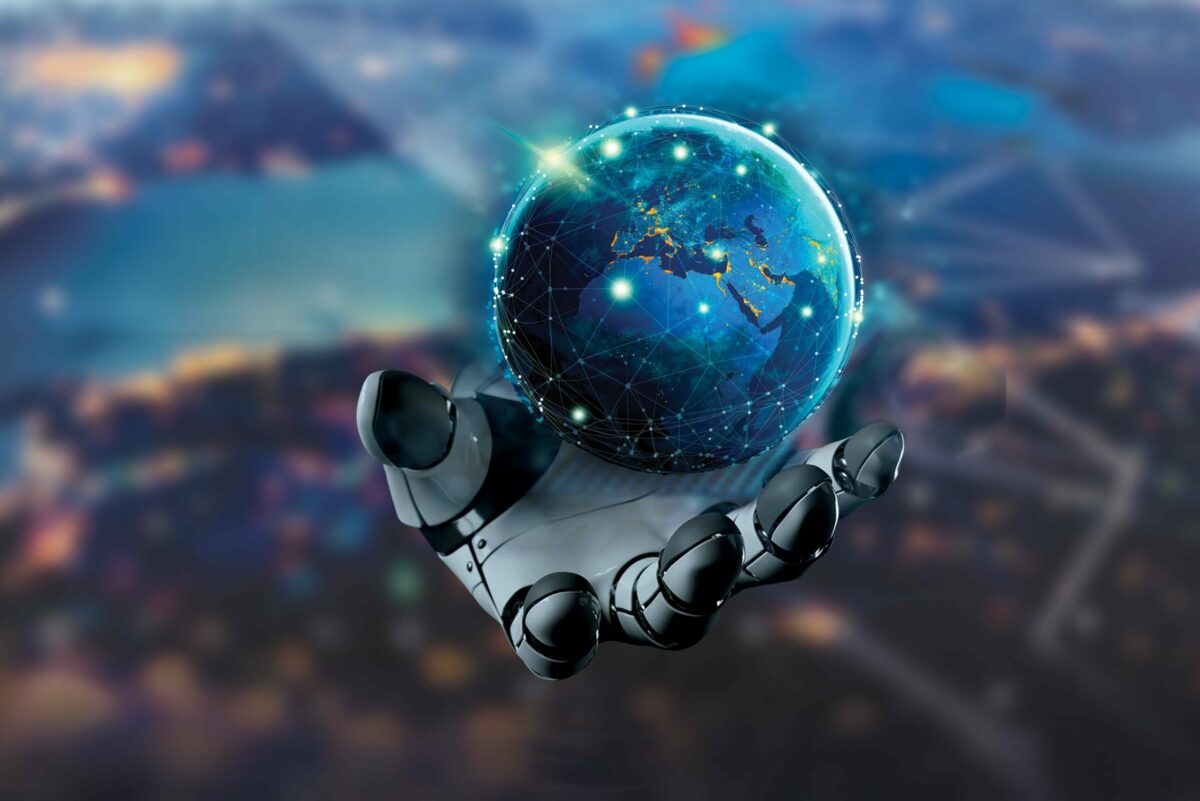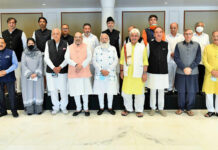by Hurmat Altaf
“Imagination is more important than knowledge. For knowledge is limited, whereas imagination embraces the entire world, stimulating progress, giving birth to evolution.”
Albert Einstein

We have reached a stage in our lives where we are unable to envision anything without the conveniences brought to us by technological components, whether they are electronic gadgets, machinery, automation, or robotics. The twenty-first century is ever-evolving and ever-developing because, every now and then, we witness new innovations being made. Over the past decade, the world has undergone significant changes, impacting every aspect of our lives. Technology, particularly electronic devices like smartphones, has increasingly met our daily demands.
Similarly, Artificial Intelligence (AI) refers to computer systems capable of carrying out activities requiring human-like intellect, including comprehension, reasoning, and problem-solving. By collecting data and making assessments, AI seeks to replicate and automate cognitive functions, supporting and enhancing human capabilities. The astonishing way it has evolved into a technology that is fundamentally altering the world is truly remarkable.
While we embrace the advancements brought by technology, it is essential to recognise the continuous and extraordinary power of human imagination throughout history. Over the centuries, human imagination has remarkably transformed into reality.
In ancient folklore, there were objects and ideas that the human mind imagined, which eventually became part of our future in various ways. The ability to predict and shape the future is a remarkable attribute of the human intellect, as evident from numerous instances where fiction has turned into reality over extended periods.
For example, in the ancient Greek epic poem Iliad by Homer, there is a mention of a structure built by Hephaestus, the craftsman in Greek mythology that could delve underwater, foreshadowing the development of submarines. Likewise, flying carpets from ancient folklore symbolise present-day aircraft. Another example is Cassandra from Greek mythology, who was bestowed with the ability to foresee the future by the god Apollo but cursed so that no one would believe her. This relates to the notion that what seemed impossible in the past is now turning into reality at an astonishing pace.
One of the most popular and historical folktales in the history of literature is One Thousand and One Nights, and Aladdin and the Wonderful Lamp is one of its tales. In this tale, Aladdin discovers a magical lamp, known as Aladdin Ka Chirag which, when rubbed, summons a genie capable of granting wishes and obeying commands. This exemplifies the limitless power of human imagination.
Similarly, ChatGPT serves as a modern-day example. A technology like this, which provides answers and information with just a click, would not have even been imaginable a decade ago. It reflects how the ancient wish for a digital genie has become a reality.
Since its launch in November 2022, ChatGPT has rapidly gained popularity, turning the dream into a tangible tool. Much like Aladdin’s lamp, ChatGPT allows us to ask questions and receive answers instantly. Moreover, it provides access to information in various spheres, whether social, economic, cultural, or others. Just as Aladdin was amazed by the genie’s ability to provide various amenities, such as tasty food for Princess Jasmine, we are fascinated by this digital genie that indirectly fulfils our diverse needs.
However, as with everything created or discovered, there are advantages and disadvantages, as we live in a world of binary choices. Human nature predisposes us to misuse things, so it is crucial for us to be sincere and honest with ourselves. In the story of Aladdin, the antagonist Jafar attempts to misuse the genie’s powers out of his avarice, wanting to become the Sultan of Agrabah and satisfy his desires. However, the story serves as a didactic reminder that excessive greed and passion can destroy an individual, as they did in Jafar’s case.

Similarly, since ChatGPT’s inception, concerns have arisen about its potential negative impact on various sectors, particularly education, with students relying on it excessively for convenience. However, when viewed from another perspective, ChatGPT not only saves time but also helps us grow and prosper by providing clarity, deep understanding, and eliminating doubts. However, it now depends on us whether we will let it make us prudent enough to compete in the world of cut-throat competition or whether misusing it will cripple us and prevent us from being able to compete in the distant future. It all depends on our wise approach to it because there is a Jafar in each of us whom we have to defeat every now and then.
Therefore, ChatGPT can be a valuable tool in different aspects of society, always working wonders and helping us achieve our aspirations. As someone rightly said, “ChatGPT is like having a knowledgeable companion at your fingertips, ready to engage in conversation and provide valuable insights.” To conclude, I would like to quote Pablo Picasso, who said, “Everything you can imagine is real. Imagination is the starting point of everything that was ever discovered and created.”
(The author is pursuing BA Honours in English from Cluster University Srinagar, Kashmir. Ideas are personal.)














